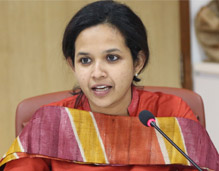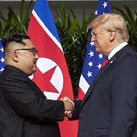India-Japan Vision 2025: Deciphering the Indo-Pacific Strategy
Associate Fellow, IDSA, Dr Titli Basu’s research article, ‘India-Japan Vision 2025: Deciphering the Indo-Pacific Strategy’ has been published in Indian Foreign Affairs Journal Vol. 13, No. 3, July-September, 2018.
- Published: 13 September, 2018












